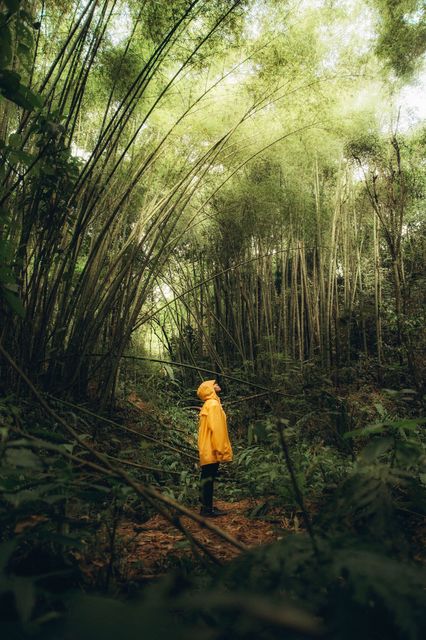
“Many of us have found a renewed sense of possibility when we’ve realized how much of God’s beauty remains to be explored — and that the life of faith is also a life of holy curiosity.”
― Rachel Held Evans, Wholehearted Faith
While I am talking about it as a spiritual practice, openness is far more than something we do. In my previous post, I spoke of how openness is a foundational part of life. Without openness there is no progress. Without openness, there is nothing new. Every new idea, new invention, or new way of looking at the world begins with openness.
Openness is foundational to the spiritual life as well. You can see this by looking at the biblical story.
The creation stories in Genesis 1-2 are stories about openness. God imagines something that does not exist and brings it into being. The place that God creates for humanity to live is a place of incredible beauty and diversity, and God encourages the man and the woman to be open to experiencing all the wonder and beauty of this place and each other.

Of course, humanity chooses against this openness, and things unravel quickly. There is the hiding in shame. There is the blaming of others instead of taking responsibility themselves. More quickly than we might imagine, there is the death of one brother by another. There is God repenting what God has created, and we have the flood story. By the time we get to chapter 11, humanity is building a tower to storm the heavens to make a name for themselves.
In chapter 12, the call to openness goes to a whole new level. God tells Abraham to pick up everything and everyone and leave his home. Where is he going? “To the land that I will show you” is God’s response. No name, no directions. All God asks is for Abraham to be open to following, open to all he will encounter as he follows.
As I was reflecting on this story of Abraham’s openness, a series of questions welled up inside of me.
Gary, when was the last time you were surprised, even startled by some aspect of your faith, some aspect of life? When you are sitting there in a place of worship or reading a book on religion or spirituality, do you find yourself saying, “Yes, yes, yes.” Or are there times when you say “No, no, no.” Or “What, what, what?”

When was the last time God surprised you? When was the last time some idea about God startled you? How did you respond? Perhaps you didn’t coil up in anger. Maybe you just dismissed it or let it go quickly, almost without noticing it? Maybe a surprising idea about God is one of the ways that God challenges you.
Another Biblical image.
When Moses comes before Pharaoh and demands that he allow the Israelites to go into the desert and worship their God, Pharaoh asks Moses what the people of Israel will need to bring to the desert as an offering. Moses replies, “We will not know with what we must serve the Lord until we come there.” (Exodus 10:26)
If I am getting ready for the arduous journey out of Egypt to the land of promise and Pharaoh asks me that question, I am coming to him with a long list of things I think I will need. But Moses says that the only way to know what we will need is to make the journey. It is only this stance of radical openness that shows us what God desires for us next.
Of course, it is hard to just declare, “Okay, I’m open,” and then wait to see what happens. We need some ways to practice openness in our daily living.
What is the first thing you do when you wake up in the morning? You OPEN your eyes.
Pause and simply look for a few moments with your opened eyes. Before you opened them, you were guided by, maybe even caught up in, your thoughts. But now, you are open to the simple space around you. The sights…the sounds…the smells…the touch of the air and the covers on top of you. Let this simply moment of openness be an invitation to be open today.
Do things that you never imagined you would do.
When you go out to eat at your favorite place, order something on the menu that you have never had. Something that you never considered eating. Something that you have said that you don’t like. What is it like to taste something different?

Attend a festival that celebrates another culture or ethnicity. Go with the intention of learning what you can. Or you can do this on your own. Think of a culture or ethnicity in which you have an interest. Do some reading and study about it. What do you encounter that is challenging or surprising?
How much do you know about the place you live? Your town? Your state? If you live in the state where you grew up, you might have taken a state history class in school. If not, find a good one and read it. What did you learn?
Listen to music beyond your favorite artists.
You don’t have to give them up what you love; just listen to something you never imagined yourself listening to. Even if you don’t like it, feel the otherness that creates that dislike.
How many times a day do you stand outside a door getting ready to open it or stand at a threshold ready to cross it?
Pause for a moment and set an intention to be open to whatever is on the other side. Yes, you have a picture in mind of what will happen. You have an agenda that you will cover. Be open to how it might unfold in a way that is different from your picture or your agenda. Are you willing to be surprised?

Spend time intentionally with people who see the world differently than you do.
Politically. Religiously. Ethnically. This goes beyond posting memes and comments on social media. Who are the people in your life that see the world differently? I’m not talking about strangers. These are people you know.
Sit with them. Pick a topic where you know you have differences. Ask them to describe their perspective. Keep asking, from a place of curiosity and not-knowing, until they affirm that you get what they are saying. Can you feel the struggle inside of you, the struggle to close down instead of continuing to be open?
Throughout the Biblical story, when God calls or speaks to a person, often their response is “I am here…here am I.” It is a declaration of openness to what God may want for them. They are saying they will put aside all their hopes and desires so that they can be open to the hopes and desires that reside in the heart of God.
Here am I. I am here.
I am here before this person that sees the world so differently. I am here before my feelings of frustration, anger, and disgust as I think about this person. I am here as I do more than think about them. I look at them. I listen to them. I am with them. I am here before my desire to ridicule, to make fun. I am here because if I am open, really open, to encountering and being with this other person, I am open to encountering and being with you, God.
The spiritual practice of openness invites us to experience the many ways we are closed off, ways we might not have known. It is an invitation that is deeply needed in our world today.
Here I am!!!
